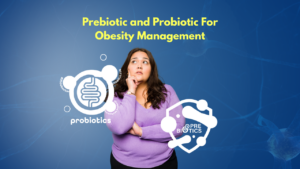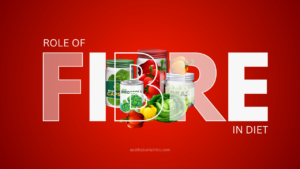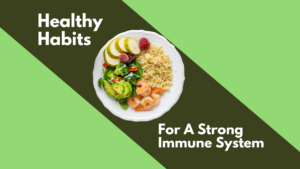
Tubaa Madani
Bariatric Dietician & Content Writer

Contribution & Link Between "Processed Foods and Obesity"
How processed foods affect your health?
Processed foods are foods that have undergone a series of manufacturing and chemical processes to alter their taste, texture, and shelf life.
Processed foods can be differentiated based on the extent of processing they have undergone.

Here are some basic differentiation between processed foods:
Minimally processed foods: These are foods that have undergone minimal processing, such as washing, trimming, and packaging.
Examples include fresh fruits, vegetables, and nuts. Pasteurized milk is a minimally processed food that is an important source of calcium and other nutrients.
Moderately processed foods: These are foods that have undergone some processing, but still retain most of their natural properties.
Examples include canned fruits and vegetables, roasted nuts, and frozen fruits and vegetables.
Highly processed foods: These are foods that have undergone significant processing and often contain additives, such as sugars, fats, and preservatives.
Examples include packaged snacks, breakfast cereals, fast foods, and ready-to-eat meals.
Here are some common types of processed foods:
Canned foods: Foods that have been preserved in cans, such as vegetables, fruits, and meats.
Frozen foods: Foods that have been frozen, such as vegetables, fruits, and prepared meals.
Packaged snacks: Foods that come in pre-packaged portions, such as chips, crackers, and cookies.
Breakfast cereals: Pre-packaged cereals that have been processed and fortified with vitamins and minerals.
Deli meats: Pre-packaged, sliced meats that have been processed and preserved.
Ready-to-eat meals: Prepared meals that are ready to be heated and eaten, such as frozen dinners and TV dinners.
Fast food: Foods that are typically prepared and served quickly in restaurants, such as hamburgers, fries, and pizza.
Baked goods: Pre-packaged bread, cakes, and other baked goods that have been processed and often contain additives.
How processed foods affect your health?
These foods are often high in calories, salt, sugar, and unhealthy fats, while lacking in essential nutrients such as fiber, vitamins, and minerals.
The effects of consuming processed foods can be both positive and negative. On the positive side, processed foods can be convenient and affordable, and can help individuals meet their daily calorie and nutrient needs. Additionally, some processed foods, such as fortified breakfast cereals or nutrient-dense protein bars, can provide a quick and easy source of essential vitamins and minerals.
However, there are also negative effects associated with consuming a diet high in processed foods. One of the main concerns is the high amount of added sugars, salt, and unhealthy fats that are often found in these products. Overconsumption of these ingredients has been linked to increased risk of chronic health conditions such as obesity, diabetes, and heart disease.
Studies have shown a strong association between the consumption of processed foods and the development of obesity. One reason for this is that processed foods are often high in calories and easy to overeat. They are also often designed to be highly palatable, meaning they stimulate the reward centers in the brain, leading to cravings and overeating.
Additionally, processed foods often contain high amounts of added sugar and unhealthy fats, which can contribute to weight gain and other health problems. For example, excessive consumption of added sugar can lead to insulin resistance, which can ultimately lead to the development of type 2 diabetes.
Furthermore, the high sodium content in processed foods can contribute to water retention, leading to bloating and weight gain.
Many processed foods are low in fiber and other essential nutrients, which can lead to poor digestion and nutrient deficiencies over time and the lack of fiber in these foods can also contribute to overeating and weight gain, as fiber helps promote feelings of fullness and satisfaction.
Additionally, the processing and refining of some foods can remove beneficial compounds and antioxidants that are found naturally in whole foods, such as fruits and vegetables.
How to minimize the use of processed foods?
Overall, while processed foods can be convenient and inexpensive, they should be consumed in moderation and to choose minimally processed options whenever possible in order to maintain a balanced and healthy diet that includes plenty of whole, nutrient-dense foods such as fruits, vegetables, whole grains, lean proteins, and healthy fats.
Making the switch from processed foods to healthier options can be a great way to improve your overall health and wellbeing.
Here are some healthy alternatives for processed foods:
- Fresh fruits and vegetables: Instead of canned or frozen vegetables, opt for fresh fruits and veggies. They are packed with nutrients and fiber and are lower in sodium and additives.
- Whole grains: Choose whole-grain bread, rice, and pasta instead of the refined, processed versions. Whole grains are higher in fiber and nutrients and lower in added sugars.
- Lean protein: Opt for lean protein sources like fish, chicken, and beans, instead of processed meats like deli meats and hot dogs.
- Homemade snacks: Make your own healthy snacks, such as hummus with fresh veggies, homemade trail mix, or roasted chickpeas, instead of packaged snacks.
- Natural sweeteners: Use natural sweeteners like honey, maple syrup, stevia leaf or fruit puree instead of processed sugars and artificial sweeteners.
- Water: Instead of sugary drinks and sodas, drink water. Water is essential for hydration and can help you feel fuller for longer without consuming extra or empty calories from sugary drinks or sodas.
- Herbs and spices: Use herbs and spices to add flavor to your meals instead of salt and processed seasoning blends.
Remember, it’s all about making small changes to your diet and choosing healthier options whenever possible. Making gradual changes can help you stick to a healthier lifestyle in the long term and will definitely prevent the risks of various diseases associated with consumption of processed foods!






